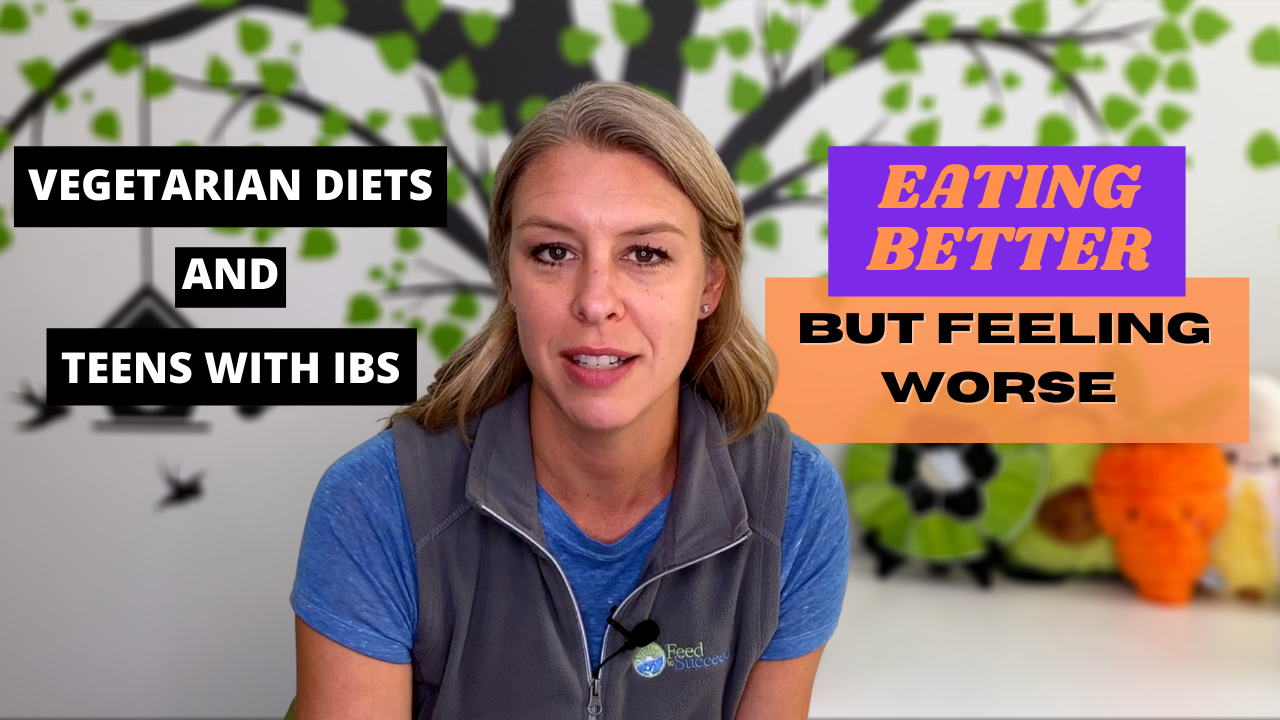https://www.youtube.com/watch?v=jfnVvPMqwgg
Almost every week, I see a teenager who’s become a vegetarian and suddenly they have lots of gas, bloating, or diarrhea. They’re eating healthier, but feeling worse.
Many teens adopt a plant based diet, for health or ethical reasons. While it can be a healthy lifestyle choice, sometimes it reveals food sensitivities or even Irritable Bowel Syndrome (IBS).
In today’s video,
—— Why Does This Happen? ——
Anytime you make a major change to your diet, it can cause new digestive processes and changes to the microbiome of your digestive system.
Vegetarian and vegan diets rely heavily on plants and dairy products for protein. Foods like beans and legumes, yogurt and cheese, even broccoli and asparagus. All these foods are high in fermentable carbohydrates (FODMAPs) that are the leading culprit of IBS symptoms.
—— What Are FODMAPs? ——
FODMAPs are types of carbohydrates, certain starches and sugars, that are fermented when we digest them. This causes gas and belching, stomach cramps and bloating, and diarrhea and constipation.
FODMAPs are found in wheat products, many fruits and vegetables, dairy products, and even artificial sweeteners, like High-Fructose Corn Syrup. Foods that are staples of a vegetarian diet.
—— What Can You Do? ——
The pain of IBS is real and can have potentially serious consequences. Persistent symptoms like gas, bloating, or diarrhea become a daily struggle.
To try to control the symptoms, sometimes teens eliminate foods for their diet that are actually healthy, ending up with a less nutritious diet. Maybe, they even give up on the vegetarian diet or feel that they “just have to live with it.”
Fortunately, this doesn’t have to be the case. Vegetarian and plant-based diets can be very healthy lifestyles. And for most people once you start eating more plant fibers and plant proteins, your body will adjust with time.
If IBS symptoms persist after some time has passed, it’s possible there is underlying IBS. In that case, I recommend you try a low-FODMAPs diet for two to six weeks. In this trial, you reduce the amount of high-FODMAP foods to see if the symptoms get better. Then, in some cases, you can add them back and find out which ones are specific triggers for you.


